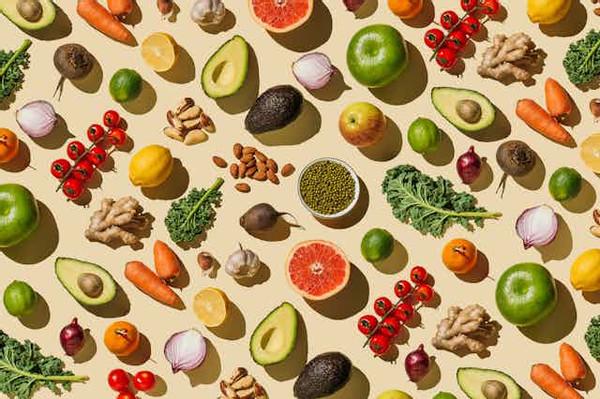Dietary Fiber: Carbohydrates’ Wrapper and Instruction Manual
Curated from: theconversation.com
Ideas, facts & insights covering these topics:
10 ideas
·1.65K reads
9
Explore the World's Best Ideas
Join today and uncover 100+ curated journeys from 50+ topics. Unlock access to our mobile app with extensive features.
Carbohydrates Are Meant To Come Packaged In Fiber
Fiber might just be the key to healthy weight management – and nature packages it in perfectly balanced ratios with carbs when we eat them as whole foods (think unprocessed fruits, vegetables, whole grains, beans, nuts and seeds). Research suggests that carbohydrates are meant to come packaged in nature-balanced ratios of total carbohydrates to fiber. In fact, certain types of fiber affect how completely our body absorbs carbohydrates and tells our cells how to process them once they are absorbed.
15
269 reads
Carbohydrates Naturally Come With Their Own Instruction Manual
Fiber slows the absorption of sugar in our gut. It also orchestrates the fundamental biology that recent blockbuster weight loss drugs like Wegovy and Ozempic tap into, but in a natural way. Our microbiome tranforms fiber into signals that stimulate the gut hormones that are the natural forms of these drugs. These in turn regulate how rapidly our stomach empties, how tightly our blood sugar levels are controlled and even how hungry we feel.
It’s as if unprocessed carbohydrates naturally come wrapped and packaged with their own instruction manual for our body on how to digest them.
17
203 reads
Processed And Ultra-Processed Carbohydrates: Signal Lost
Unfortunately, many of us get the majority of our carbohydrates stripped of their natural fibers. Modern processed grains like white rice and white flour as well as many ultraprocessed foods like some sugary breakfast cereals, packaged snacks and juices have removed these fibers. They essentially come unwrapped and without instructions for the body on how much it should absorb and how it should process them.
15
179 reads
No Signal = No Carbohydrates?
One popular approach to mitigating some of the ill health effects of low fiber and high refined carbohydrates has been to limit carbohydrate intake. Such approaches include the low-carb, keto, paleo and Atkins diets. Each diet is a variation on a similar theme of limiting carbohydrates to varying amounts in different ways.
13
172 reads
Yes, Low-Carbohydrate Diets Can Benefit Metabolic Health
There is scientific backing to the benefits of some of these low-carbohydrate diets. Research shows that limiting carbohydrates induces ketosis, a biological process that frees energy from fat reserves during starvation and prolonged exercise. Low-carbohydrate diets can also help people lose weight and lead to improvements in blood pressure and inflammation. That said, some keto diets may have negative effects on gut health. It is also unknown how they may affect heart health, some forms of cancer and other conditions in the long term.
13
149 reads
But High-Carbohydrate Diets Can Also Benefit Metabolic Health
Even more confusing, research shows that people with diets high in plant-sourced carbohydrates, like the Mediterranean diet, tend to lead the longest and healthiest lives. How can this be reconciled with studies that suggest that low-carbohydrate diets can benefit metabolic health?
13
146 reads
What To Limit, What To Increase
The answer may have to do with the types of carbohydrates that studies are evaluating. Limiting simple sugars and refined carbohydrates may improve certain aspects of metabolic health, as these are some of the most easily digested and absorbed calories.
But a more sustainable and comprehensive way of improving health may be increasing the percentage of unprocessed, more complex and slowly absorbed carbohydrates that come with their natural packages and instructions intact – those that have fiber.
15
135 reads
Ratios Of Total Carbohydrate-To-Fiber
Unprocessed, more complex and slowly absorbed carbohydrates come in ratios of total carbohydrate to fiber that rarely exceed 10-to-1 and are often 5-to-1 or lower. Eating mostly whole foods is a simple way to ensure we’re consuming quality carbohydrates with the right ratios.
Focusing on packaged processed foods that maintain carb-to-fiber ratios of at least as low as 10-to-1 or ideally 5-to-1 can help us make the best choices when picking more processed foods at the store. Take a look at the nutrition facts label and simply divide total carbohydrates by dietary fiber.
18
132 reads
“Moderation In All Things” Applies To Fiber Consumption Too
While almost all fiber is generally good for health in most people, not all fiber affects the body in the same way.
Certain medical conditions might preclude consuming certain types of fiber. For example, some people can be particularly sensitive to one class of fiber called FODMAPs – Fermentable Oligosaccharides, Disaccharides, Monosaccharides And Polyols – that are more readily fermented in the upper part of the gut and can contribute to symptoms of irritable bowel syndrome like bloating and diarrhea.
16
132 reads
I wouldn’t endorse eating sweets all the time, but as my three daughters like to remind me, it’s important to enjoy yourself every once in a while. And when you do, consider putting the carbs back in their fiber wrappers. It’s hard to improve upon nature’s design.
CHRISTOPHER DAMMAN, MD MA
15
141 reads
IDEAS CURATED BY
CURATOR'S NOTE
“Consider putting the carbs back in their fiber wrappers. It’s hard to improve upon nature’s design.”
“
Similar ideas
1 idea
1 idea
Health Benefits of Chickpeas and their Nutrition value
megabloginfo.com
Read & Learn
20x Faster
without
deepstash
with
deepstash
with
deepstash
Personalized microlearning
—
100+ Learning Journeys
—
Access to 200,000+ ideas
—
Access to the mobile app
—
Unlimited idea saving
—
—
Unlimited history
—
—
Unlimited listening to ideas
—
—
Downloading & offline access
—
—
Supercharge your mind with one idea per day
Enter your email and spend 1 minute every day to learn something new.
I agree to receive email updates

